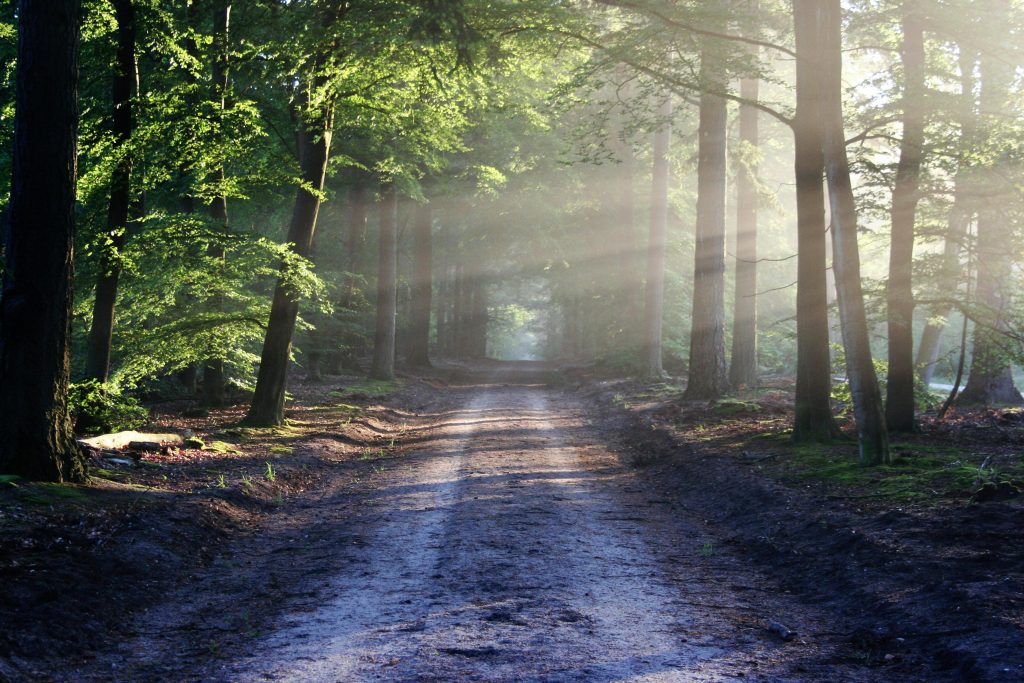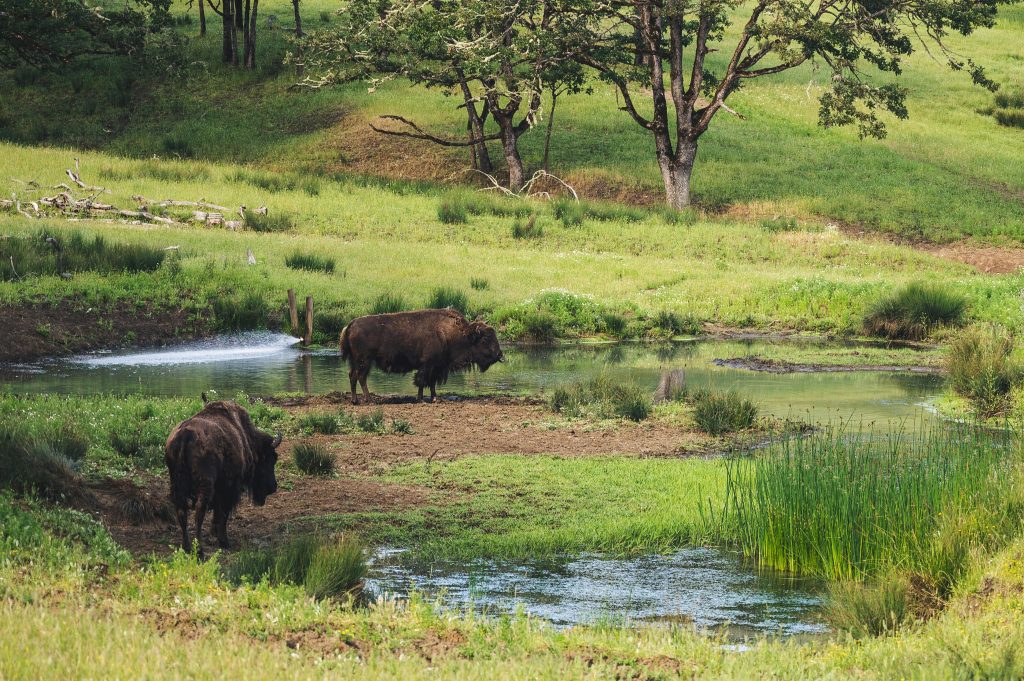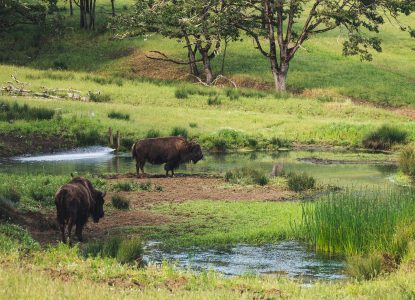By JoAnne Wadsworth, Communications Consultant, G20 Interfaith Forum.
As part of Native American Heritage Month, the G20 Interfaith Forum and International Academy for Multicultural Cooperation hosted this illuminating discussion exploring the vital work of Indigenous leaders. The final installment of a five-part webinar series was hosted by Charles Houston, Strategic Relations Coordinator at Seventh Generation Fund for Indigenous Peoples, featuring panelists Jennifer Randolph of the Northeast Native Network of Kinship and Healing, and Lucille Contreras of the Texas Tribal Buffalo Project. This November 26, 2024 discussion explored how Indigenous communities are revitalizing traditional practices and reclaiming cultural spaces.
— —
Charles Houston
Houston, speaking from Wiyot ancestral lands, shared a powerful narrative of cultural renaissance through the revival of Pa’ah (traditional canoe) building in Karuk communities. Following a devastating 1964 flood that swept away all traditional canoes, this vital cultural practice lay dormant for over six decades, creating a profound gap in ceremonial and community life. Through a collaborative effort between the Seventh Generation Fund, the Karuk Reconstruction Project, Nature’s Rights Council, tribal assistance programs, and Ancestral Guard, workshops were organized across three communities – Orleans, Happy Camp, and Yreka, California.
This initiative resulted in the construction of the first traditional Karuk canoe in more than 60 years, culminating in a jubilant community celebration that offered rides and strengthened community bonds. The project has catalyzed a broader cultural awakening, inspiring communities along the river to plan additional canoes, traditional houses, and dancing grounds. Houston highlighted this as part of a larger movement of Indigenous cultural reclamation, citing examples like the Makah’s revival of whaling traditions and the translation of Star Wars into Native languages as evidence of thriving Indigenous cultures.
“We’re in a transformative moment in time where Indigenous peoples have a lot to offer ourselves, our universe, our surrounding communities, as well as the global population. The old ones are guiding us while we simultaneously create new traditions, rebuilding healthy and vibrant communities that have sustained our peoples for generations.”
Jennifer Randolph
As Executive Director of the Northeast Native Network of Kinship and Healing (“Kinship Heals”), Randolph has pioneered an innovative approach to addressing intimate partner violence, sexual violence, and trafficking in Native communities. The organization emerged from a pivotal 2010 tribal assessment that revealed their community faced violence rates matching national statistics – with 84% of Native women experiencing violence in their lifetime. Rather than relying on external expertise, Kinship Heals focuses on strengthening traditional community support systems and cultural practices as pathways to healing.

The organization’s evolution reflects a deep understanding of traditional values and healing methods. What began as modest container gardens has blossomed into a comprehensive program incorporating Traditional Three Sisters gardens, youth dance programs, equine therapy, and high school talking circles. Their recent acquisition of eight acres on Martha’s Vineyard (their ancestral Aquinnah homeland) represents a transformative $1.67 million investment in their community’s future. Plans for this space include a traditional food forest, ceremony grounds, and a shelter designed with innovative sustainable technologies – all aligned with their commitment to fossil-fuel-free development and traditional food preservation methods.
“We believe the best way to end violence against Native people is not to bring in clinical experts from the outside world, but rather to support and increase the capacity of our own tribal community members to heal one another. Being in relationship with plants and the natural world, preparing traditional foods, and working together in our gardens – these are medicines that nothing else can provide. It’s about rebuilding healthy ecosystems where we can be in good relationship not just with each other, but with ourselves and all our relatives – plant, animal, and human.”
Lucille Contreras
As founder and CEO of the Texas Tribal Buffalo Project, Contreras leads a transformative initiative reconnecting Texas Indigenous communities with their traditional relationships to buffalo and land. Operating on 77 acres in south-central Texas – the heart of traditional Lipan Apache territory – the project serves diverse Indigenous communities including the Carrizo Comecrudo, Kickapoo, Coahuiltecan, and many others. Their recent acquisition of an additional 150 acres through the Conservation Fund marks a historic return of ancestral lands that were lost during the tumultuous 1870s-1880s period, complete with mineral rights – a rarity in oil-rich Texas.

The project’s innovative programs center around a holistic approach to cultural and community restoration. Their “Meat for Mamas” initiative provides USDA-certified bison meat to Indigenous women during pregnancy and postpartum, directly addressing the disproportionate rates of gestational diabetes and heart disease in Native communities. As the only bison provider accepting EBT (food stamps), they ensure traditional foods remain accessible to all community members. Their annual Buffalo Harvest has grown from 150 to over 200 participants, bringing together Texas Indigenous communities for ceremony, traditional butchering, and communal sharing. Youth camps provide hands-on experience in traditional skills, from plant identification to buffalo caretaking, while fostering the next generation of Indigenous land stewards.
“Our mission is to reconnect Texas Indigenous communities to each other by rekindling our kinship as relatives – and we do that by connecting to the Buffalo as our relative as well. Everything centers around water’s relationship to soil, to grass, to Buffalo, guided by ancestral knowledge and prayers. When we come together to harvest Buffalo, to share meat, to drum and pray together – that’s when our kinship becomes tighter and stronger. This isn’t just about food sovereignty; it’s about recreating those ancient bonds between Buffalo nations of the north and south.”
Q&A Highlights:
- Discussion of traditional healing methodologies and their integration with contemporary practices
- Exploration of land acquisition strategies for cultural revitalization
- Examination of how kinship models strengthen community bonds
- Conversation about sustainable practices and environmental stewardship
Key Points:
- Cultural revitalization goes beyond preservation to active community transformation
- Traditional practices offer solutions to contemporary challenges
- Land reacquisition is crucial for cultural sovereignty
- Intergenerational knowledge transfer strengthens community resilience
- Indigenous leadership in environmental stewardship
- Cultural practices support holistic community healing
— —
JoAnne Wadsworth is a Communications Consultant for the G20 Interfaith Forum Association and Editor of the Viewpoints Blog.


